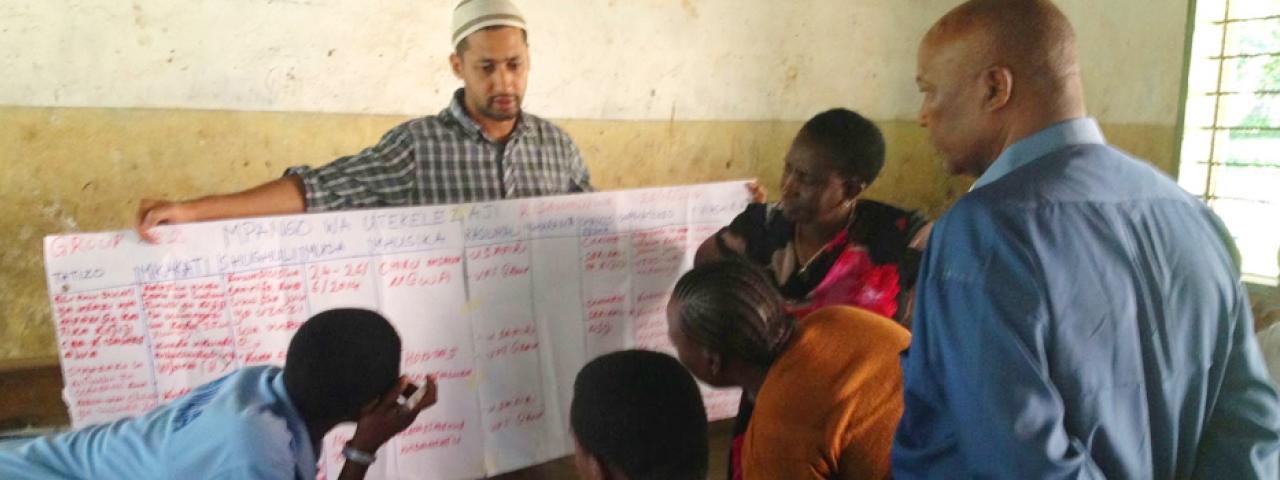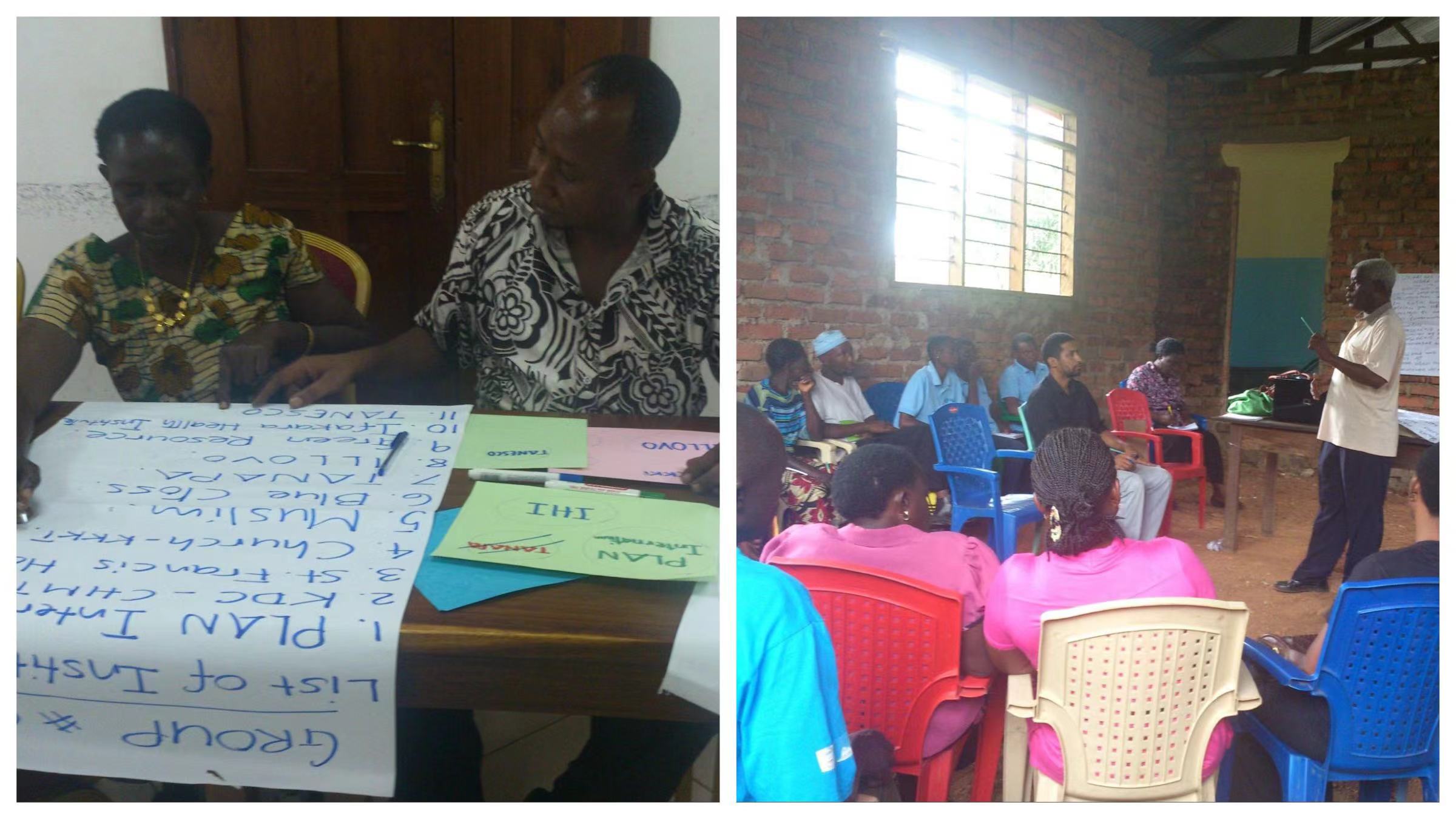
What roles do religious leaders play in community health? How should researchers engage with the communities they study? Assistant Professor of Anthropology Mohamed Yunus Rafiq, who joined NYU Shanghai in 2018 after a research fellowship at Harvard’s Kennedy School, shares his research on NGOs and child and maternal health in Tanzania.
What are you working on?
I’m working on a book, Developing Religion, on how NGOs and development agencies have used religious leaders in family planning and maternal and child health projects. These programs are seen as sensitive so it's very interesting that NGOs or development agencies don't want to go directly to deal with the community. I asked, why are NGOs using religious leaders as intermediaries instead of directly engaging?
I went to the field with the assumption that religious leaders are this stable community–meaning they existed a priori–but when I met religious leaders in rural villages in South-Central Tanzania, they would say, no, I'm not a religious leader. I was baffled by these responses because in the media, public conversations and development literature, religious leaders are invoked. What I found instead is that religious leaders do not often exist a priori. Rather when NGOs go to these areas to develop family planning services, they work, sometimes unintentionally, to invent religious leaders. They find individuals who have a potential to become a religious leader and then they develop them. Developing here means constructing these rural religious figures into religious leaders through training, allocation of roles and responsibilities, small talks and rituals. So the book is about invention, about how NGOs as secular institutions are creating religious authority in rural Tanzanian contexts.
My recent paper in Social Science and Medicine comes from this project and was written in collaboration with the NGOs I worked with. I do my fieldwork with the community and part of my knowledge is the knowledge of the community. I see the community as authors and theorizers, not as sources of data. Unlike other anthropologists, I’m not just writing, I'm interested in implementation research. What kind of perspective can we bring as social scientists that can aid policy makers, implementers, and governments in trying to reduce the burden of particular diseases?

Left: 2014 in rural Morogoro, Tanzania. Project facilitators learning participatory approaches for community health.
Right: A project facilitator gives a family planning lesson to gathered villagers in rural Morogoro.
How do you translate these ideas of community engagement in the classroom?
I tell my students, in my class you’re not just going to learn theory, you are going to also create your own ethnographic knowledge, and this will come by doing community engagement. They do this by going out into the community, writing field notes, and I give them space in class to teach and share their wisdom.
One way that I also translate this idea of community engagement is that I have assignments for weekly responses where they read a bunch of texts and digest the key ideas of these texts. Two things that I explicitly tell them are: one, could you connect what you read this week to your own personal experience? Secondly, could you link what you read in class to global issues? I really enjoy reading these responses because it becomes an opportunity for students to apply their knowledge. Anthropology has been characterized as purely a theoretical endeavor, at least from my training at Yale and Brown. The flavor that I'm bringing is more the realm of applied anthropology defined as a dialectic between practice and theory. I compel my students to seriously think about what their ideas can do for the world—a world that is under a grip of impending calamities such as climate change, possibility of large scale wars and increasing displacement of human beings. I also urge them to bring ethnographic perspectives to their data structures class, or Introduction to Computer Science, and find intersections between anthropology and these subjects.
How does being on the faculty at NYU Shanghai help encourage this kind of thinking?
At NYU Shanghai, I belong to the Social Science department, so as a faculty member, in my daily routines, I am meeting psychologists, people from global health, sociologists, and sometimes even historians of medicine. The experience is really one of meeting, talking and exchanging conversations with people who are not in my field.
So I have to think, how do I create these linkages? It makes sense to start with people who are already working on issues related to health and public health. I work in public health and therefore people who have interest in health and ethnography become natural kins. There are also a lot of topical intersections at NYU Shanghai, like faculty members who are interested in authority or charismatic leaders, and that's what my research is about. When NGOs use religious leaders, perhaps in their mind they're looking for charismatic leaders because the population is reticent to speak about issues that are quite sensitive. It's really wonderful to have these kinds of conversations and share some of my writing and ideas.
At a macro level, that’s what NYU Shanghai is about. NYU Shanghai is a collaboration with ECNU, which is a very different kind of institution, and of course, our students are also students who are coming from different backgrounds. That kind of philosophy does trickle down.
What’s next on your research agenda?
For my new project, I want to bring the dimensions of collaboration and interdisciplinarity to cancer organizations in order to understand the cancer epidemic in Sub-Saharan Africa, and more specifically in Tanzania. Cancer is one of those epidemics that is thought of as not African, because cancer was seen as a disease for developing countries, and African countries are in the category of least developed, but we're seeing large numbers of people who are suffering from cancer.
I’m collaborating with Professor Brian Hall, some colleagues at John Hopkins Bloomberg School of Public Health, the Amsterdam Institute for Global Health and Development and members of NGOs in Tanzania. Since last year I have also been building capacity and training Tanzanian MA and PhD students on ethnography, in Swahili, and it’s been interesting to transmit what I have learned in English in Swahili. This is part of my ongoing collaboration with Dr. Rene Gerrets and Dr. Fatima Bapumia from Amsterdam Institute for Global Health and Development. We’re hoping to start preliminary research for this project later this year, mapping out what is happening on the ground, which might then eventually translate into improvements in cancer care and raise the capacity of young African and Tanzanian scholars in cancer research.

